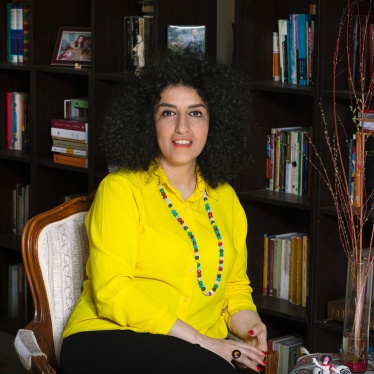This is the exact English translation of Musa Hilal speaking on tape to Human Rights Watch. For a full transcript of the video, with the voice over included, click here.
Clip 1
MH: Regarding the problem of Tawila, I already told you about the issue of the commanders. All of the people in the field are led by top army commanders. The highest rank is major, and officers, and some sergeants, and some captains, and so on. These people get their orders from the Western command center, and from Khartoum.
Clip 2
MH: I’ve never thought of becoming a soldier, or a military commander, and of leading troops and attacking the rebels’ command areas in Tawila, or anywhere else. That’s not true.
Clip 3
MH: As a coordinator and mobilizer, as I said before, yes, it’s true, I mobilize people, I coordinate with recruiters. I’ve been with the PDF commanders, but I was never a commander of troops in a war zone.
Clip 4
MH: Listen, Doctor, they have to get this idea out of their heads. These troops in the west of Kebkabiya, in the north of Kebkabiya, in the south of Kebkabiya, inside the mountains of Jebel Marra -- these troops have commanders leading them, in accordance with military rules.
I’m from Kebkabiya. I come and go with groups there, and I travel with the nomads; I visit their families. This much is true. I attended a small conference on reconciliation, and I’m very involved in establishing relationships of mutual coexistence, specifically west of Kebkabiya. It’s very peaceful from the Mea area up to Wadi Bare, especially my area, which is called Seref Umra, there are about 86 villages made up of different tribes -- Arabs, Fur, so many tribes, Tama, Gimir. I’m involved in encouraging good relationships and establishing local defense forces, made up of Arabs and Fur, to defend Arab and Fur villages. We have to make sure that the Arabs patrol Fur villages, and Fur patrol Arab villages, to defend them from attack.
There are some people in this war that are not part of the joint patrols, and they’re not rebels – they’re criminals; they want to profit off the situation. We build the joint defense forces from different tribes to defend these villages. We’ve secured the area very well, especially west of Kebkabiya. This area is not affected by the war: there’s no displacement, no one is fleeing, the markets are open, the roads are open – it’s a very secure area right now. It’s my area, I’m not denying that I’m involved in this, and I’ll continue to be involved: it’s a good thing that I’m doing.
But as for the military units, with guns, that move around to attack rebel areas or that are attacked by rebels – they’re under the orders of field commanders.
Clip 5
MH: It’s the government’s concern. They’re the ones that gave the PDF the guns; they’re the ones that recruited the PDF; they’re the ones that pay their salaries; they give them their ID cards. They can disarm them or they can leave them alone; that’s the government’s concern.
Clip 6
MH: Our job is to mobilize the people – the government has told us to mobilize people. We’ve gone to the people to tell them to join the PDF and defend your country, defend the land, defend the country’s most important things, and that you have to fight for your survival and the country’s stability. If the government comes back to us and tells us that they want to demobilize the people that we brought to them, that’s the government’s concern.
Clip 7
MH: I don’t have a relation or link by which they can talk to me personally. If they want to talk they can talk to the tribal leaders’ conference and issue the orders, like previous orders to disarm the rebels or the Janjaweed. I think the PDF is a military organization. There’s no link by which they can come talk to me.
Clip 8
MH: Is this question specifically directed to me and my people: are you saying that we attacked the rebels without the presence of the military? That’s not true. I just want to tell you something there’s criminals on all sides, from all tribes in the area, whether my people or other people. There are people who aren’t part of the PDF or the rebels. These people are greedy and selfish. I’ll give you an example: when a cow dies, all the vultures come from the sky to feed off the carcass. The problem between the government and the rebels -- sometimes criminals take advantage of the situation and they commit crimes. And these crimes exist and you can’t say who’s responsible for them. There’s a lot of propaganda made up about this. You can’t tell who did them, where they went; everything is hazy.
Clip 9
MH: First, I am not a criminal. Thank God I’m not afraid. I’ve never had any fear. If there’s a concrete complaint and an investigation is opened against me, I can go to court -- nobody is above the law -- but not because of allegations made by Ali al Haj and Khalil Ibrahim, who are rebel leaders, who make up dark information and give to the UN, and they put my name on the list. That’s not right.







